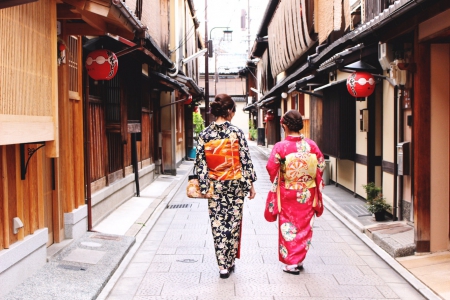Many companies from all over the world have entered Thailand, and many companies from Japan have established local subsidiaries and factories. Thais who work for companies that have expanded from other countries are wondering how they feel, especially for Japanese. Here are some things that I felt about Thai people seen from Thai people through work and Thai people seen from Japanese people.
About schedule or how they work

Japanese respect effective way
I think Japanese are good at managing time. In addition, I learn how to use my time from my boss and seniors at work, and I try and use my own skills. In that way, you may be able to increase the time available for yourself. In addition, many business people will try to move forward as much as possible to prepare for unexpected matters or issues.
From the point of view of Thai people, they sometimes get impatient about the Japanese way of thinking about risk management, such as “Why are you so panic?” There is no difference if today is tomorrow, and if you wait a few days (I / I) you will not be bothered. For example, we may not be able to respond promptly to customer inquiries. As a Japanese, I feel like I have to be in the position of the other person and respond to it as soon as possible. However, Thais come to the idea that “I will ask customers to extend their response date.” The proposal isn’t bad, but if you repeat all that, your customers will be away in no time.
Thai people respect the position
However, they are very concerned with their age and their position (position) and tend to suppress their remarks. In some cases, we may contact external companies for customer inquiries. In such a case, it is difficult to say that the person in charge is older or to be at the mercy of the other party. It Japanese are tough for I know in time, but want to process himself early, because there may not helpless because there is a cultural background, must correspond noticed is Japanese.
Basically loose on time. In addition, at the end of work, even if the work is halfway through, or if there is a submission that must be completed by the next day, you will return home exactly.
Company retreats

Japanese don’t like going for drink
In Japan, people often hate drinking parties, year-end parties, New Year parties, recreation, etc., and I think many people are not good at participating if possible. Even at a drinking party, you have to be careful, there are bosses, there are people who are not familiar with the workplace, you have to think about the timing of returning, and because you just get tired just attending I will fall. In addition, many Japanese consider the workplace and the private life to be separate, and some say that work is work. At a drinking party, I would like to drink with the people I like and think that I should invite them individually.
Thai people love gathering
However, many Thais are looking forward to this drinking party. In Thailand, many companies plan year-end parties, new year parties, and employee trips. And almost all employees are willing to participate. “What does the company do for me / me?” Is also a point of finding a job, as well as confirming the benefits, as well as the number and size of the meals and recreation, which increases or decreases the level of satisfaction. You. Even in the company where I am, I always hold a dinner party such as a year-end party or a new year party. We will also plan employee trips if we have time. Regarding the dinner party, we will leave it to Thai people to plan from the selection of the shop to the content of the party.
Employees are young, and at some point, they spontaneously rarely look at work, such as renting out a small hall in a hotel, holding a party year wearing party dresses, or holding a karaoke competition at a restaurant with karaoke. He also proposes a creative project as a pom-pom and works aggressively until the day before. On the day, everyone enjoys the meeting, drinking and eating with a smile, taking photos, busy taking selfies, and quick loading on Instagram. Karaoke sings for the microphone. Thais who are pleased purely have an easy-to-understand personality, so they will never get tired of watching it (roughly rude). Somehow innocent, nostalgic and warm to the heart, just like in Japan a year ago.
Don’t forget to think of others

I don’t know who said it, but Thailand is often referred to as “the land of smiles, Thailand”. However, this “smile” does not always mean true heart. Especially at work, it is wise not to give an atmosphere or instructions that create such a “smile”. From a Thai point of view, you may want to laugh around and get around the place, or you may think you’re a troublesome Japanese person. You may be thinking. On the other hand, we are relieved by the smile and misunderstand that “I understand you” and “I am interested”. I try to interpret it for myself and, at worst, apply it to one of the Japanese cultures and customs. Such misunderstandings create a vague “smile” spiral. It may be necessary to stop at what the intention of the smile was now.
Thinking about how to give a “smile” with real intentions is a shortcut that facilitates communication with Thai people and allows friendly feelings of each other to communicate both in the workplace and in friendship.










































Leave a Reply